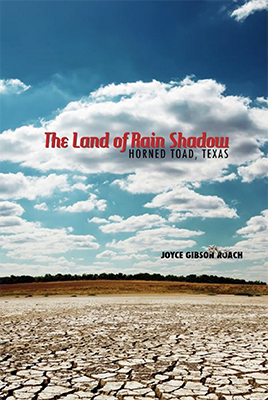 Michelle Newby is contributing editor at Lone Star Literary Life, reviewer for Foreword Reviews, freelance writer, member of the National Book Critics Circle, and blogger at www.TexasBookLover.com. Her reviews appear or are forthcoming in Pleiades Magazine, Rain Taxi, World Literature Today, South85 Journal, The Review Review, Concho River Review, Monkeybicycle, Mosaic Literary Magazine, Atticus Review, and The Collagist.
Michelle Newby is contributing editor at Lone Star Literary Life, reviewer for Foreword Reviews, freelance writer, member of the National Book Critics Circle, and blogger at www.TexasBookLover.com. Her reviews appear or are forthcoming in Pleiades Magazine, Rain Taxi, World Literature Today, South85 Journal, The Review Review, Concho River Review, Monkeybicycle, Mosaic Literary Magazine, Atticus Review, and The Collagist.
Lone Star Book Reviews
of Texas books appear weekly
at LoneStarLiterary.com
A native of North Carolina, author Ernie Wood received his AB in English literature from Hamilton College in New York, returned to his home state to work in newspaper and magazine journalism, and arrived in Austin in 1984 as a writer/editor for Southern Living magazine. Over a long career, he has been an award-winning writer of non-fiction books, documentary film scripts, advertising and journalism, which he also has taught at Austin Community College. Since the early 1990s has been a writer and manager of writers at a number of Austin advertising agencies and high-tech companies. One Red Thread is his first novel.
The Land of Rain Shadow: Horned Toad, Texas
978-0-89672-926-1, Texas Tech University Press, paperback, 136 pages, $24.95
June 15, 2015
The Land of Rain Shadow: Horned Toad, Texas is a collection of eight short stories by Joyce Gibson Roach, she of the impeccable c.v.: author, rancher, Fellow of Texas State Historical Association and Texas Folklore Society, member of Texas Institute of Letters and the Philosophical Society of Texas, past president of Horned Lizard Conservation Society, Honoree in the National Cowgirl Hall of Fame, and founder of the Center for Western Cross Timbers Studies.
The stories in Rain Shadow are linked by place, each set in the tiny, fictional town of Horned Toad. As these pieces reflect on the importance of the land, the characters and time periods change but the land abides. Roach quotes Tom Lea in her introduction: “Its richness is space, wide and deep and infinitely colored, visible to the jagged mountain rim of the world – huge and challenging space, to evoke huge and challenging freedom.” Roach and Lea are writing of West Texas, my home.
Roach’s colloquial style had me laughing aloud at the candidate for sheriff in “In Broad Daylight” whose platform is elimination of free bosoms: “A Bra on Every Woman. Let’s keep our women Decent and Strapped Down!” Roach is at her Mark Twain best when poking fun at religious pieties and denominational hierarchies. “Just as I Am” reveals summer revival season as told by a fourteen-year-old girl. “Mid-July to August was the season to gather lukewarm Christians, Backsliders, and New Material into the fold.” Sister Elizabeth has the kids play “Find the Scripture.”
“Who can tell us about Bible sports?” One kid jumped up. He was ready with Genesis 26:8, “Isaac was sporting with Rebecca his wife.”
“Animals,” [Sister Elizabeth] said, her voice rising. Someone quoted her a line about oxen and asses. “Women,” she shrieked. Bubba Ray Thompson replied with a plum about whores, and Sister Elizabeth hit the door…
This story turns serious when the young narrator learns a lesson about the limits of Christian charity.
In “Crucero” Roach brings out the imagery.
“[W]hen the blue-black one and Señora Sanchez would stand in the yard by the windmill and pour buckets of water on each other to wash their hair…how they would sit on the back steps of the casa grande and comb the tangles from their own jet black hair…how the sun would shine on the women and how beautiful they were with their hair unbound and loose and wet, the drops of water like jewels and rainbows in their hair…children would wait until the next time when the words would summon them again — “The women are watering their hair!”
Roach’s stories are about the dynamics of small towns in Texas. There’s the Christian sanctimony, the “isms” of class, sex, and race, and boastful ignorance of the larger world. There’s also discreet charity, the anchor of shared history, the comforts of the familiar, and united fronts. “Too simply put, it is hardly surprising that a place as marked by harshly aberrant weather as mine reveals itself in other human extremes as well: hard-nosed religion, peculiar politics, curious customs.”
And everybody said, “Amen.”
* * * * *


